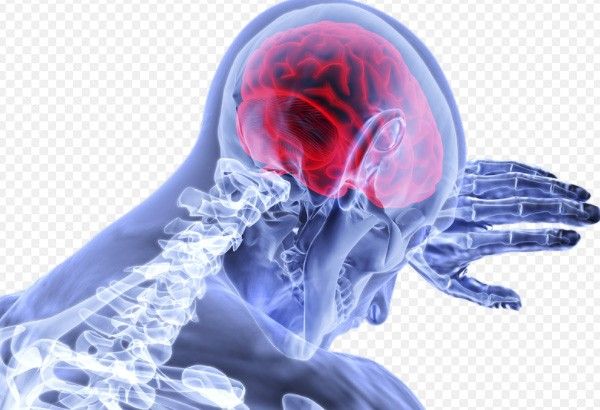Mental Health Awareness Month: More than a COVID-19 symptom, what is brain fog?

MANILA, Philippines — Are you forgetful? Did it worsen after getting COVID-19?
If so, then you might be experiencing what doctor Fran Bernardino-Vergara described as “brain fog.”
Along with prolonged loss of sense of smell or taste, body aches and sleeplessness, brain fog, according to Dr. Bernardino-Vergara, is among the symptoms or consequences of a new condition called “Long COVID,” wherein symptoms associated with COVID-19 can still be experienced by patients months or even a year after they were supposed to have recovered from the disease.
“Brain fog is a range of symptoms spanning from frequent forgetfulness to inability to think clearly,” Dr. Bernardino-Vergara explained in an exclusive interview with Philstar.com.
This more acute kind of forgetfulness could lead to early Dementia, she warned, because it is a sign that something not good is happening inside the brain and is affecting the firing of neurons and the release of neuro-transmitters.
“Moods and emotional imbalance are sometimes related to food – there are food that cause inflammation that would promote weight gain and brain fog, which could lead to depression and anxiety if not addressed early,” the doctor warned.
Dementia 101
A medical expert has sounded the alarm on early and proper detection of dementia in the Philippines, which is often misinterpreted as an aging problem or being “ulyanin” and "malilimutin" in Filipino terms.
In the first episode of a webinar series called “Malilimutin: Dahil nga ba sa katandaan?," neurologist and Dementia specialist Dr. Jacqueline Dominguez shared her knowledge on Dementia and how to differentiate it from mere forgetfulness on the part of the patient.
HI-Eisai sponsored the webinar to raise awareness on Dementia and related types of diseases.
"Dementia is a collection of symptoms with decline in cognition, change in behavior, and impairment of daily function," Dominguez said in the live webinar held recently.
She enumerated the types of Dementia, including the most common one, Alzheimer's Disease.
Other types are:
- fronto-temporal,
- Parkinson's Dementia,
- Dementia due to traumatic brain injury,
- and Dementia due to depression and other medical conditions.
For her part, digital influencer Nina Rayos acknowledged that there is still a lack of awareness when it comes to dealing with Dementia.
Rayos is known in the social media through her vlogs featuring her mother, Donya Toyang, who has been clinically diagnosed with Alzheimer’s Disease.
She shared how it took seven years before her family learned that Donya Toyang was forgetful not due to old age, but was inflicted with the disease.
"My mother started to show early symptoms of [Alzheimer's disease] in 2012, but we only just had her diagnosed in 2019. We didn't really think about it so much back then, thinking that maybe she's just simply getting old. She forgets a lot of things, and she always misplaces house keys and money," Rayos said.
What triggered her to finally bring her mother to the hospital was when the latter was hallucinating. Rayos recalled how Donya Toyang started to become confused on basic day-to-day activities such as cooking, and began to forget important details in her life such as the name of her children and granddaughter and the fact that her parents and other loved ones already passed away.
Dominguez said disorientation or hallucination is one way to differentiate mere forgetfulness from Dementia. She said that is most likely Dementia when someone's moment of disorientation already makes it hard for her to go back to reality and determine what's real or not.
"Early diagnosis prevents the disease from progressing. Elders suffering from Dementia are treated badly because the family doesn't really understand their situation," Dominguez explained.
Dominguez then highlighted the importance of the role of family and relatives in spotting the aforementioned symptoms. She said it’s the patients’ loved ones that can help direct them to appropriate medical responses to their condition.
Meanwhile, Dominguez said other symptoms to watch out for are:
- extreme cases of memory loss wherein the potential patient could no longer remember a lot of things;
- when the person is already having difficulty in performing tasks that she or he is used to doing;
- when the person is already having poor judgment.
Early diagnosis and treatment are important to help slow down the progression of Dementia. For one, Dr. Bernardino-Vergara recommended Acupuncture as a preventive therapy against brain fog and Dementia.
RELATED: How to recover from ‘Long COVID’: Doctor shares tips



















